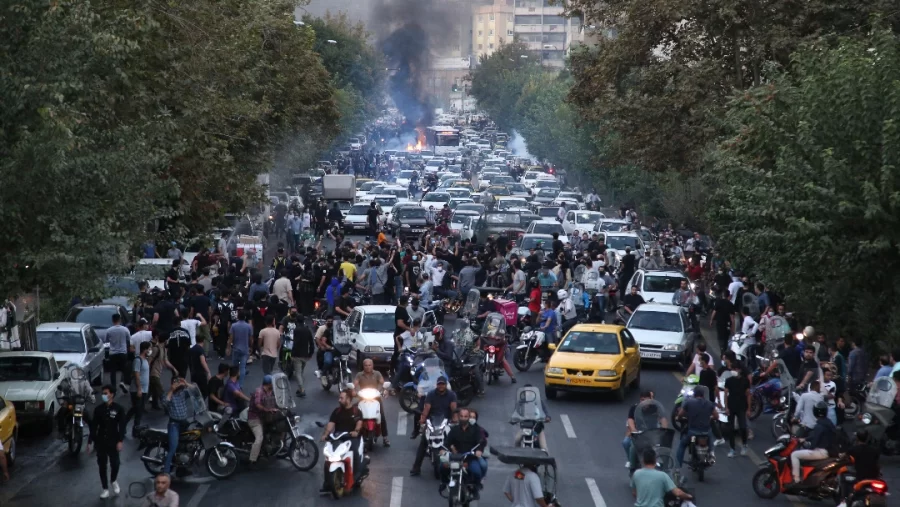Iranian Government’s Barbarous Crackdown Must Come to an End
November 6, 2022
On October 31, the Iranian Government declared that it will be holding a public trial for 1,000 people detained during anti-government protests in Tehran and another 1,000 who protested outside of the capital. This wave of protests was ignited by the death of Mahsa Amini, a 22-year-old woman who died following the arrest by the Guidance Patrol (the government’s religious morality police) for not wearing her hijab (headscarf) in accordance with the country’s strict hijab law. Throughout the protest, the crowd removed their hijabs while chanting “death to the dictator [Iranian Supreme Leader Ali Khamenei].” While the government continues to claim that she died due to a heart attack, Amini’s parents and the people remain unconvinced as witnesses testified that Amini was beaten in a detention van.
An update on the death toll by Human Rights Activists News Agency (HRANA) reports that Iranian Security Forces have killed at least 244 people—including 32 children—throughout the crackdown. Among them was Komar Daruftade, a 16-year-old from Piranshahr in West Azerbaijan Province who had been shot by security forces at a distance of merely three meters. It appears that the protests were largely led by young adults and college students, as approximately 70% of arrested protestors haven’t entered their 20s yet. Despite the young age of the protestors, the Iranian government is seeking to put a swift and merciless end to the movement. Some of the arrestees have already been sentenced to death without due process of law. For instance, 22-years-old Mohammad Ghobadlo, according to his mother, was charged with “corruption on Earth” and was sentenced to death after “just one hearing.” His mother further reports that he was interrogated without a lawyer and that she needs help as the government plans to “execute him soon.”
Despite the brutal crackdown and other forms of oppression, the young protestors are receiving large support from Iran’s population, especially from their teachers. Iranian teachers’ union launched a two-day strike over the “lethal targeting of schoolchildren in a crackdown on protests,” stating that “the rulers must know… Iran’s teachers do not tolerate these atrocities and tyranny” and that it will “continue our protest until people’s right to protest is recognized, all pupils are unconditionally freed and return to schools, the system stops killing the people and children, and stops answering the people’s rightful demands with bullets.” It also reports that a large number of teachers have been arrested along with students.
The international community has condemned the Iranian government for the brutal crackdown. The US State Department announced that it would work with its allies to respond to the Iranian regime’s “state-sponsored violence against women” and recently levied sanctions against Iranian officials and entities involved in crackdown and internet censorship. The European Union is also attempting to coordinate sanctions, freeze assets, and promote travel bans against the Iranian government but recognized that “foreign policy options are limited.” Ukraine took a unique approach and urged FIFA to bar Iran from participating in the World Cup for its “systematic human rights violation” that goes against FIFA statutes.
The protests and the government’s response to them bring into question the government structure involving excessive religious influence. Throughout history, many governments have used religion to justify immorality and oppression. Today, however, no religion—whether that be Christianity, Islam, or Judaism—should promote the massacre of teenagers and young adults to preserve its values and traditions. While the Iranian government maintains that it is upholding tradition and religious values, the regime is rather shaming its God by using the religion, which it claims to respect and safeguard, as an excuse for political stability through the ruthless slaughter of young men, women, and children. Its actions only reflect the regime’s arrogance and an endless desire for power. It would be important for the international community to take decisive actions and bring a halt to the unprecedented suppression of human and women’s rights.

















































































































































